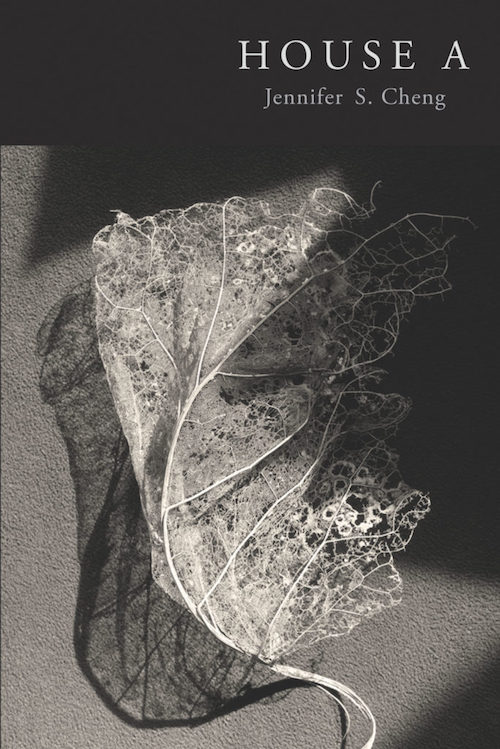In House A, Jennifer S. Cheng Meditates on the Concept of Home

Poet Jennifer S. Cheng spent her early years in between the United States and Asia. Her mother is from Taiwan and her father grew up in Hong Kong. Her new book, House A, selected by Claudia Rankine for the 2015 Omnidawn 1st/2nd Poetry Book Prize, explores the idea of home from a variety of entry-points. Cheng speaks with Evan Karp about her process of writing the book at SF Gate. More:
In the beginning of her first book, “House A” (Omnidawn), Jennifer S. Cheng writes: “It is important to note that before language, children experience memories as image and sound, which is to say they experience them as poetry.”
Composed of three sections, each written in a different form, “House A” reconstructs this childlike experience of the world by blending the literal and metaphorical ways in which we build our houses and our selves.
The first section is a series of letters written to Mao, intimate and conjectural, that investigate the overlapping natures of memory and longing, history — both personal and cultural — and rootedness.
By phone, Cheng said, “I think a lot about how — in my particular immigrant household, how does history and how does trauma and how do all these things that I never really heard about explicitly from my parents ... how do those things become part of me?”
She ponders how the historical figure of Mao could be a huge presence in her house, even though her parents did not tell her stories about him.
“I somehow still knew about it,” she said. “I start to think about it as if that knowledge was built into the objects in our house, or the shadows in our house, or the way my parents moved around, or the way that they structured the furniture.”
Cheng was born in Texas and moved to Hong Kong, where her father grew up, when she was 8 (her mother is from Taiwan). They moved back to the U.S. four years later.
“We moved around a lot,” Cheng said, “so the idea of home or house was never necessarily a stable, physical structure. I think this is often the case with immigrants and children of immigrants, and it makes me wonder then where does our sense of home or house come from, and what are we then rooted in, or what roots us? I’m really interested in that question.”
Continue at SF Gate.


